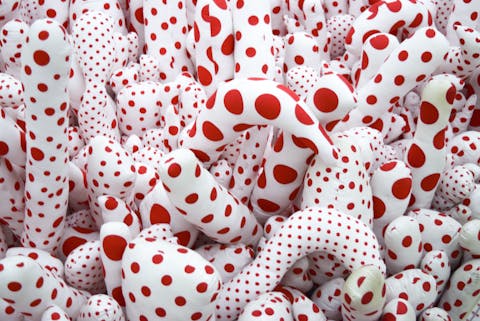Learn About Contemporary Art (Part 2)
Whether we realize it or not, contemporary art affects us all as a part of our every day lives.
It is easy to take for granted the primal role art plays in the collective culture of humanity, whether it is through the media we consume, the clothes we wear, the products we buy, or the way we form our perceptions of current events and issues; contemporary art is undoubtedly crucial in our understanding of the world around us and the way we interact with modern day concepts.
What is Contemporary Art?
Although we hear the term contemporary art quite often, many find it difficult to delineate exactly what it refers to. In actuality, the definition changes throughout time, as time progresses and art grows older. For now contemporary art typically describes art which was created in the second half of the 20th century, or the 21st century. Inspired by the previous generation of Modernism, many contemporary artists ignore the traditional western conventions that defined artistic practices of the previous centuries, focusing much more on contemporary subjects and contentions such as race, religion, cultural identity, community, and nationality.
Inspiration
While in the last century art has seen an explosion of diversity in various materials, styles, subjects, and movements, what contemporary art does share in common across the board is its concern with current issues of culture. However the scope of such subjects is vast and expansive, and topics can vary across anything from technology, feminism, globalization, mental illness, the sense of self, political critique, immigration, and much more. Thus contemporary art stands out amongst genres of previous centuries and generations as unprecedentedly varied and dynamic in its contributions to the ever evolving meaning of what defines art.
"...contemporary art stands out amongst genres of previous centuries and generations as unprecedentedly varied and dynamic in its contributions to the ever evolving meaning of what defines art. "

Phalli's Field, Yayoi Kusama, 1965
Notable Artists
There are so many leading figures in the world of contemporary art, spanning throughout 50 or so years of artistic practice across the entire world, thus narrowing down a list of the top contenders for the most influential artists of the genre is a near impossible task. However there is no denying that there are a number of stand out figures who have made a great impact on the contemporary art world.
Keith Haring
Keith Haring, born in 1958 in Pennsylvania, was an artist whose practice emerged from the street culture of 1980's New York City. Haring gained popularity and success through his subway paintings, and he later worked on large-scale commissioned works after becoming well-known. His starkly graphic lines and patterned images became a widespread cultural phenomenon, his distinct style still remaining embedded in our visual culture today. His work dealt with issues such as homosexuality, and the AIDS crisis, which the artist would later die from in 1990.
Jean-Michel Basquiat
Basquiat, born in 1960 in New York City, was an artist that combined various forms of media into one single art form, unifying both word and image in order to carry out various social and political critiques. Subjects that he focused on were poverty, segregation, power structures, and racism. Born of Haitian and Puerto Rican descent, he took great inspiration from his heritage in order to respond to issues of systematic prejudice and the class struggles of minorities that were such prevalent factors in the lives of working class citizens of inner city areas. By the 1980's his work was internationally appraised and sought after, being exhibited in numerous galleries across the globe. In 2017, one of his paintings sold at auction for £770,000.
Yayoi Kusama
Yayoi Kusama, born in Japan in 1929, is one of today's most influential contemporary artists. Experimenting in a wide variety of techniques and mediums, she focuses primarily on issues of feminism, sex, and psychological as well as autobiographical content. She is known most greatly for her sculptural and installation work, creating an immersive experience for the audience, eliciting a sense of the repetition of intrusive thoughts. Today the artist is still active and highly revered in the contemporary world, her work being displayed in any number of prestigious institutions across the world.
Looking Forward
As time progresses and the world seems to grow ever more complex and interconnected, contemporary art is a force in itself that actively contends with the development of our culture and the issues and subjects of interest that rise up along with it. With its remarkable span of scope and variety in subject matter, materials, technique, and methodical approach, it challenges traditionalism and the establishment of generations past.
While as a whole contemporary art lacks a distinguished uniformity or sense of organization in what it collectively stands for, perhaps the unifying essence of the genre is that as an audience, we are able to play an active role in contemplating the meaning and significance of a work of art. Thereby it is in this sense that art is able to intertwine itself with the fundamental ways in which we live and perceive our lives.

